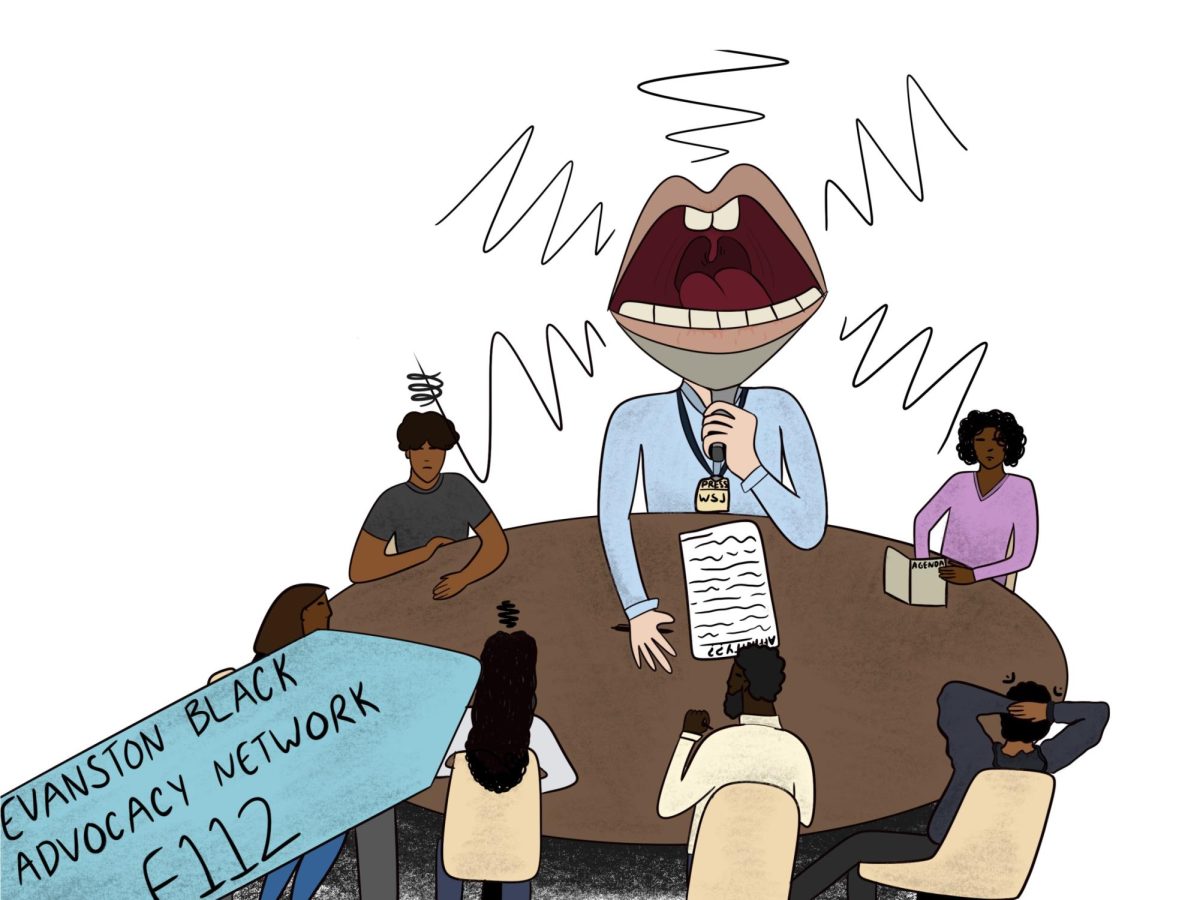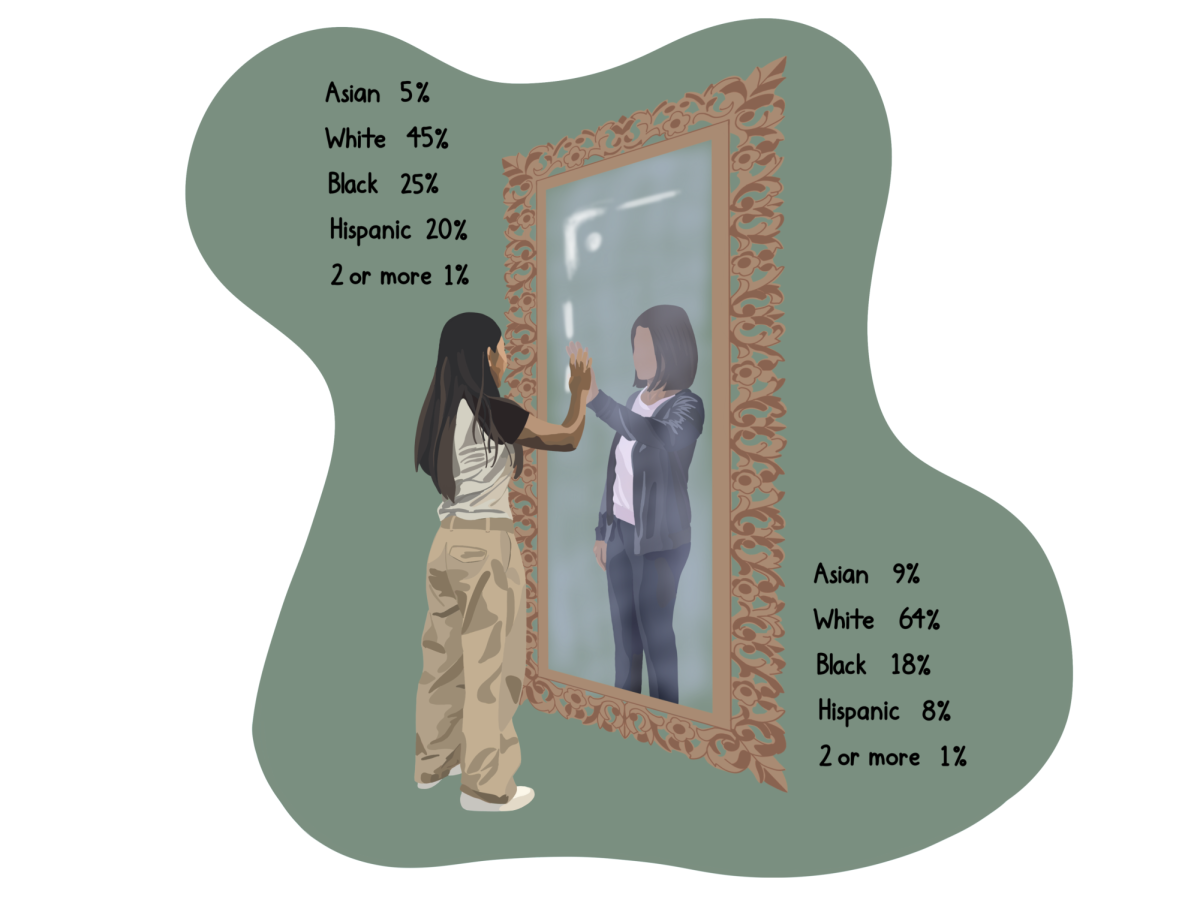Fall is always a time for change. There’s the usual factors—colder weather, orange-y trees, apple cider popping up more prominently in grocery stores—but also other changes, like the start of a school year. And that change, in particular, always comes with new school policy.
On April 19, school administrators sent out an official email informing students and parents of the first new policy of the year. Titled ‘New Cell Phone Practices Beginning in Summer 2024,’ the email was met with little surprise. In the weeks prior, talk of a potential cell phone ban permeated every hallway—so the arrival of the email was little more than the conclusion of weeks of student speculation.
The phone policy was not the only new practice implemented at the start of this school year. Two other notable changes—the implementation of final exams and a scan-in process at the start of the school day—marked significant changes to students’ school life.
Reactions to the new policies were mixed. Many students saw them, particularly the cell phone policy, as an affront to their independence. They argued for the necessity of being able to contact family at all times, and in some cases, their arguments were logical. Teachers, however, saw the policy as a chance to finally reclaim their students’ attention, attention that they should have had in the first place.
At The Evanstonian, we see the real question as something else—how do these new practices, disregarding all the initial complaints or praises for them, affect students’ well-being? School is not meant to only be a place of confinement every weekday, it’s meant to be a safe space for learning and preparation for life after graduation, whatever that may be. If these new practices better implement that goal, they should be accepted.
Since its implementation, the phone policy has made a significant difference in classroom life. Yes, students gripe about having to put their phones in the bright blue cubbies; yes, people make jokes about the often-heard refrain ‘bell-to-bell no cell,’ but the truth is that students have been more focused in class, or at least less distracted. Without the always-available option of checking one’s notifications, an urge that is irresistible for the vast majority of phone users, the only other option is to try to pay attention during classroom instruction. Sure, there is nobody to force students to pay complete attention to everything in class at all times, but often, if the options are between being bored and paying attention to something class-related, students will choose the latter. Social interactions have also been more frequent—a direct result of the policy. Without the easy escape route of looking at one’s phone, students tend to look around, notice others, and talk to them.
Similar benefits can be found with the other two new policies. The scan-in process is meant to be an additional security measure for students, and an alternative to metal detectors. The reimplementation of final exams, which were a practice until the 2021-2022 school year, helps prepare students for academic life after graduation, where the majority of grades are indeed determined by a handful of major exams. In both cases, the new policies, however inconvenient, are actually beneficial, either as a better alternative to more restrictive policies or for future academic success.
Some believe that giving students agency in controlling phone usage should start early, so people are ready for independent life post-graduation. The same argument can be made for finals—when the time comes, students will be able to study and perform on their college final exams, regardless of whether they had to in high school. It is of the opinion of The Evanstonian, however, that it is still the responsibility of school administrators, not only students, to try to positively benefit students’ well-being, and the implementation of these practices is doing just that. A restriction on phone usage is a scientifically-backed school performance enhancer, school safety is improved by scanning IDs every morning, and finals prepare students, whether they feel that they need that preparation or not, for life after high school.
So, although it may be difficult to crack open textbooks in preparation for semester exams, annoying to turn in a phone every class period, and inconvenient to have your ID ready every morning as you walk into the building, the new school policies are for the betterment of student lives, inside and outside the classroom. Fall is a time for change, and new educational practices are a change—a change for the better.











